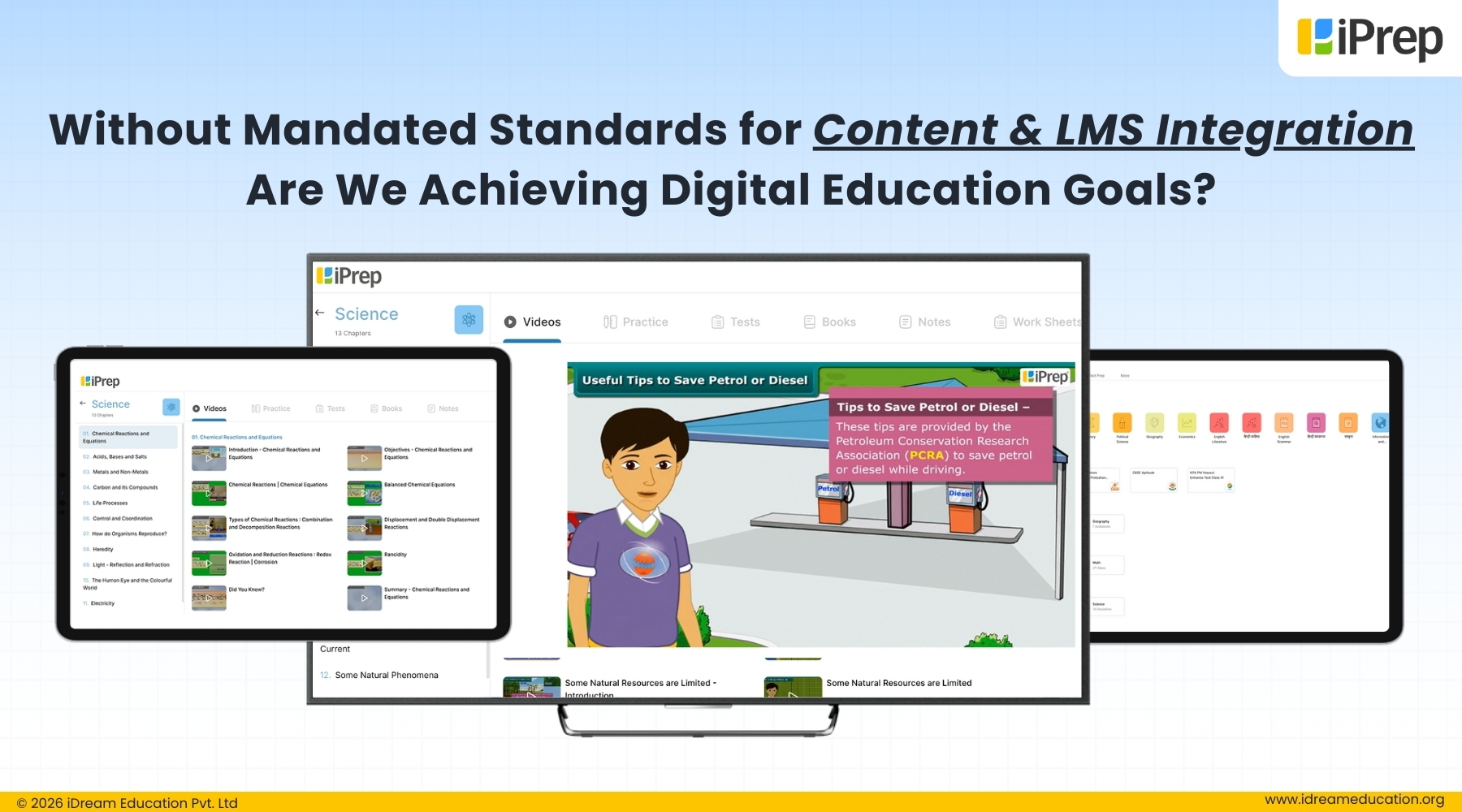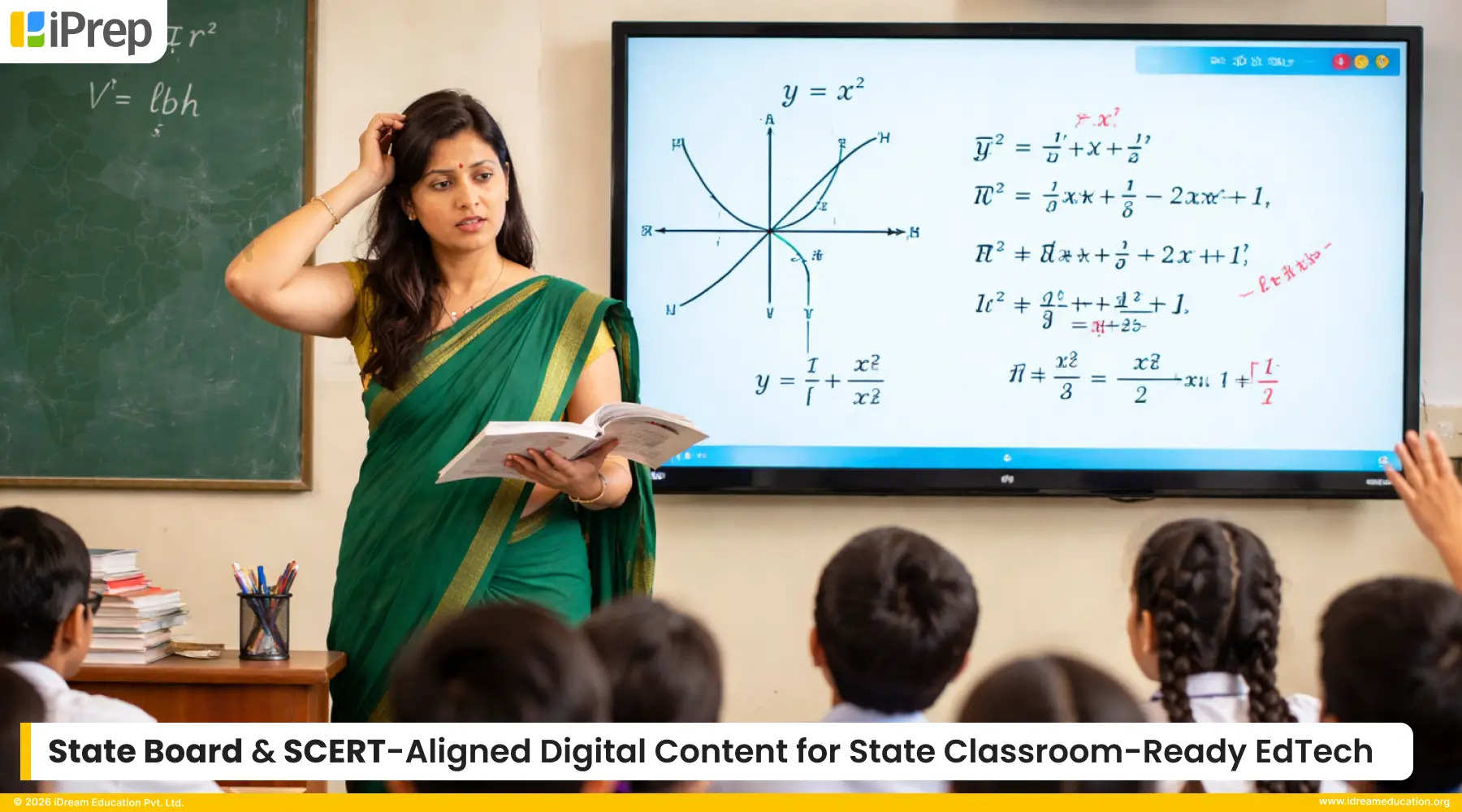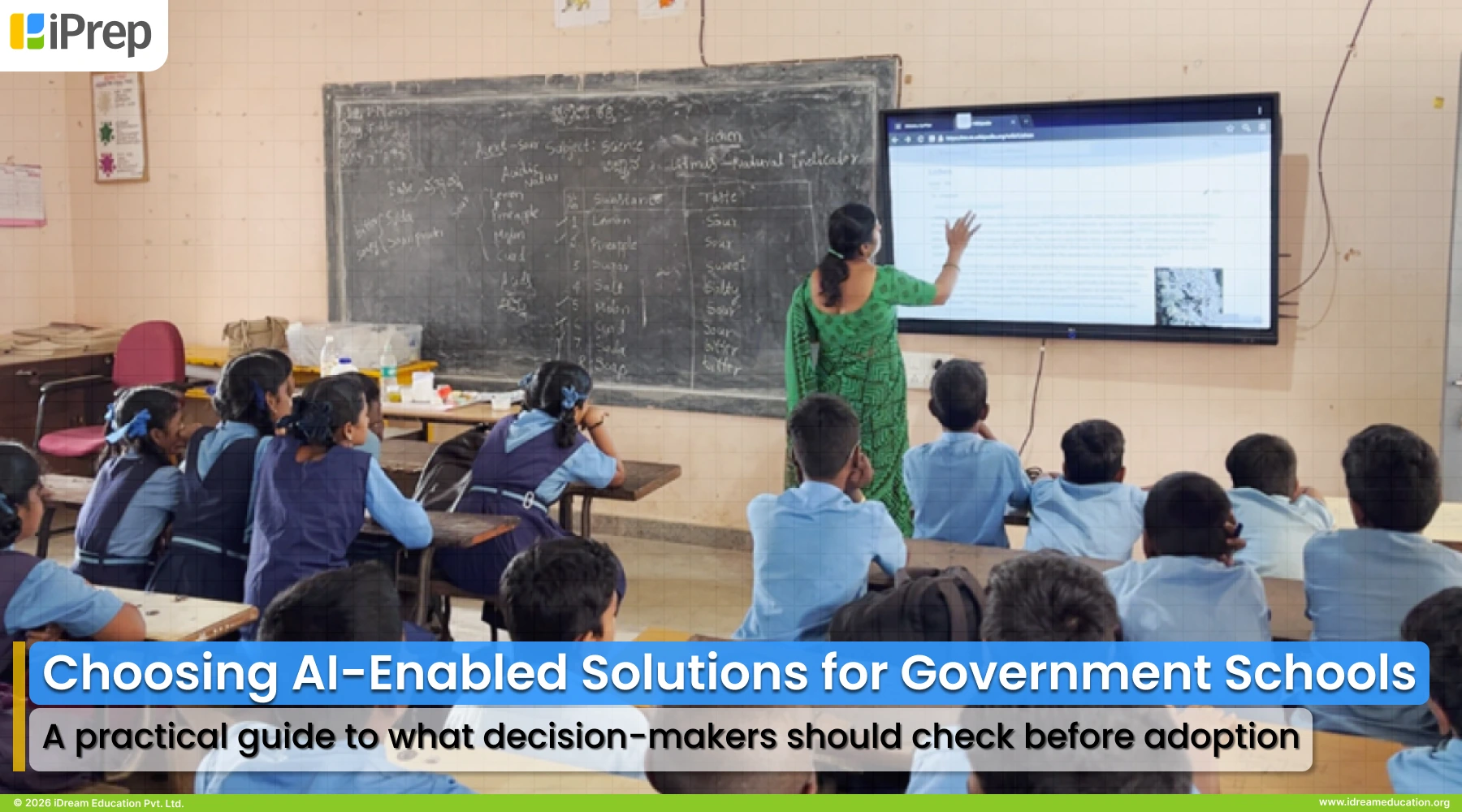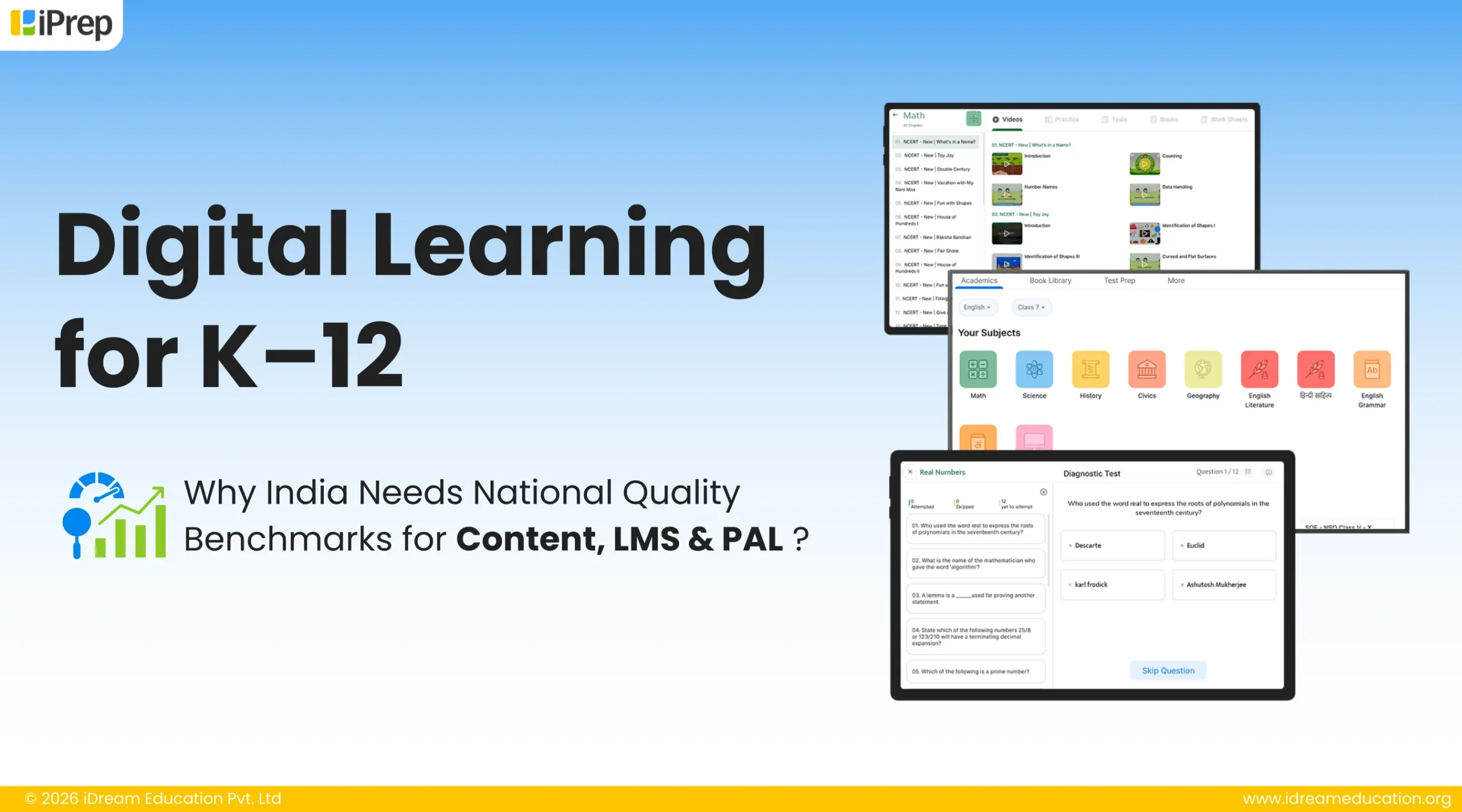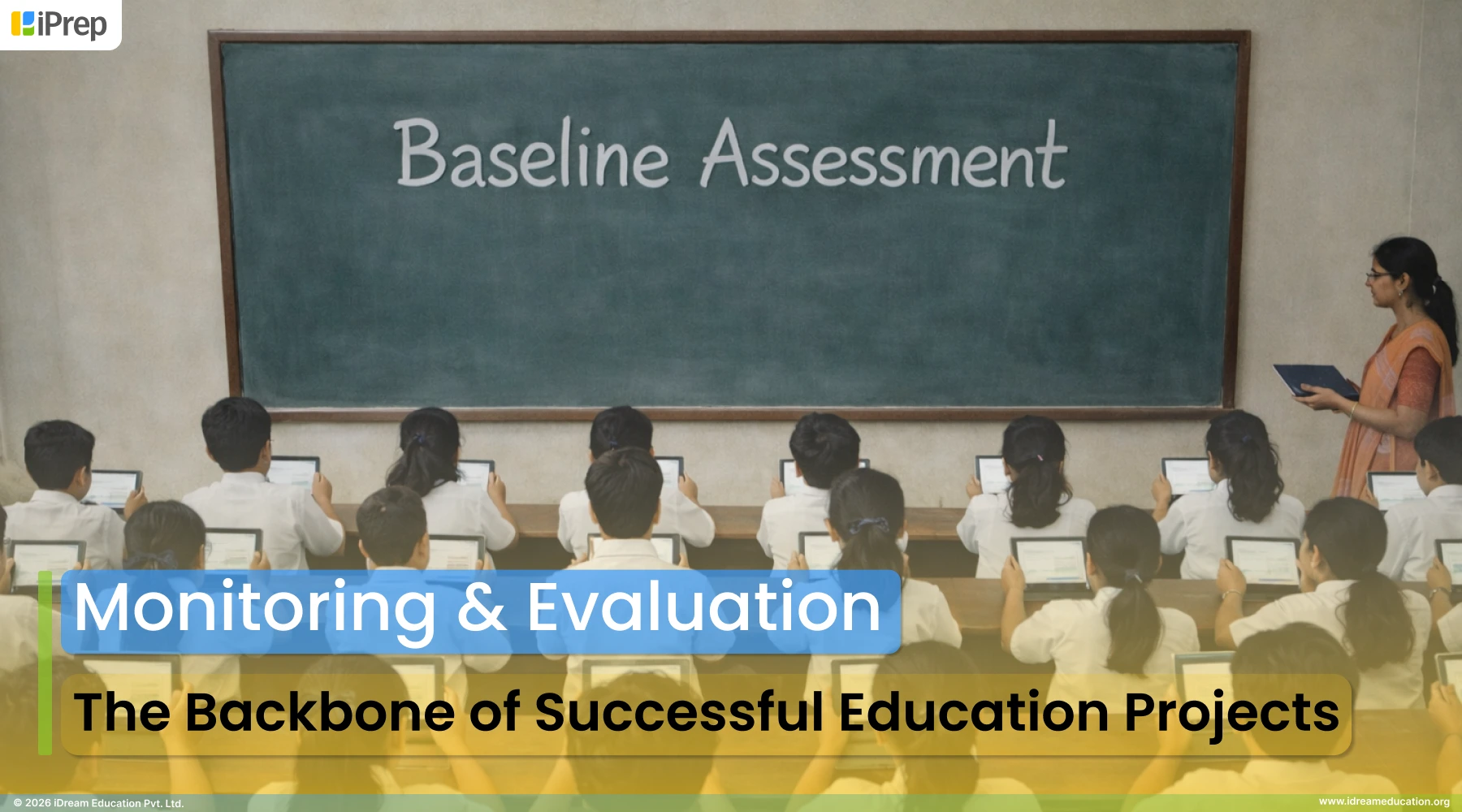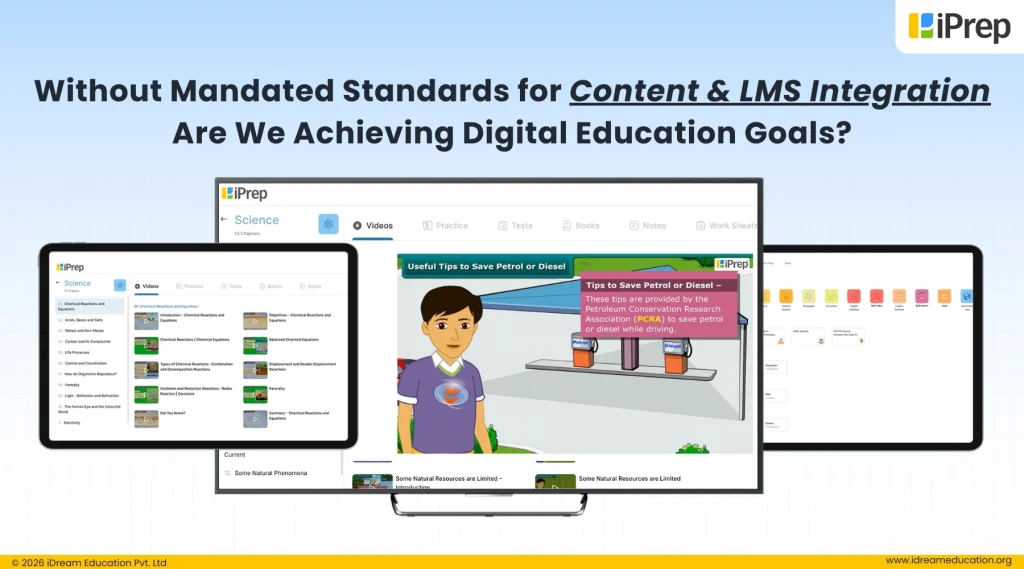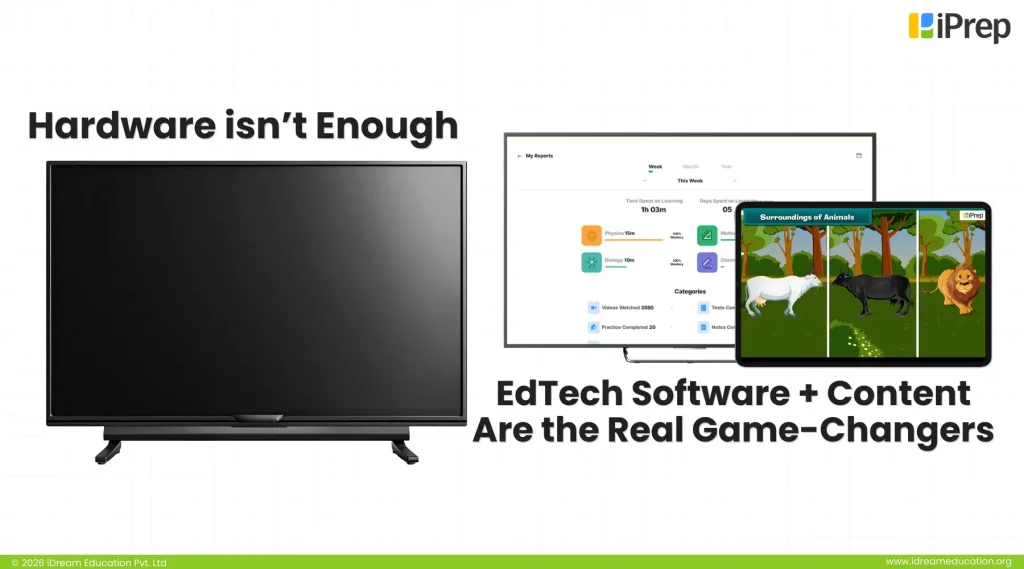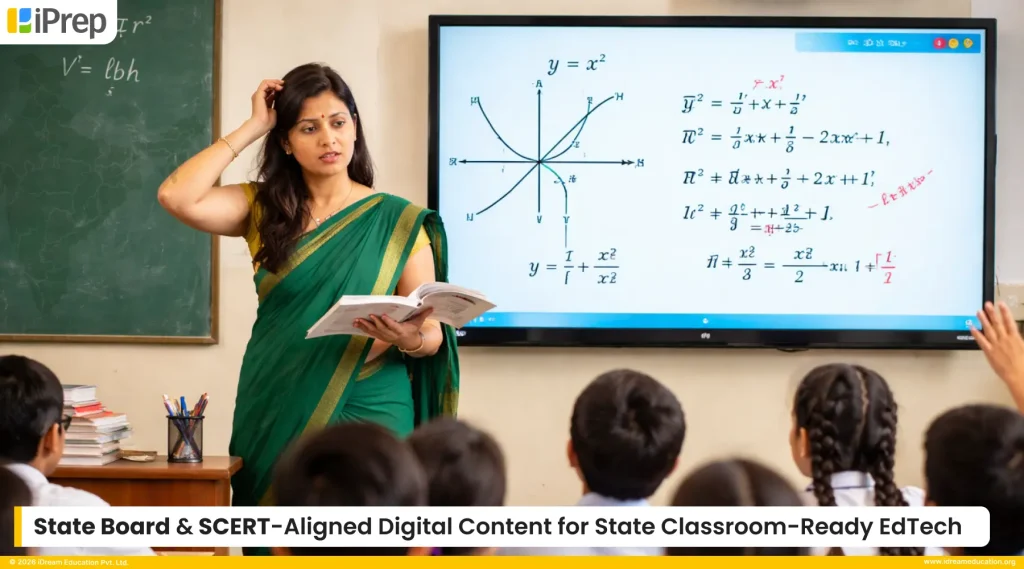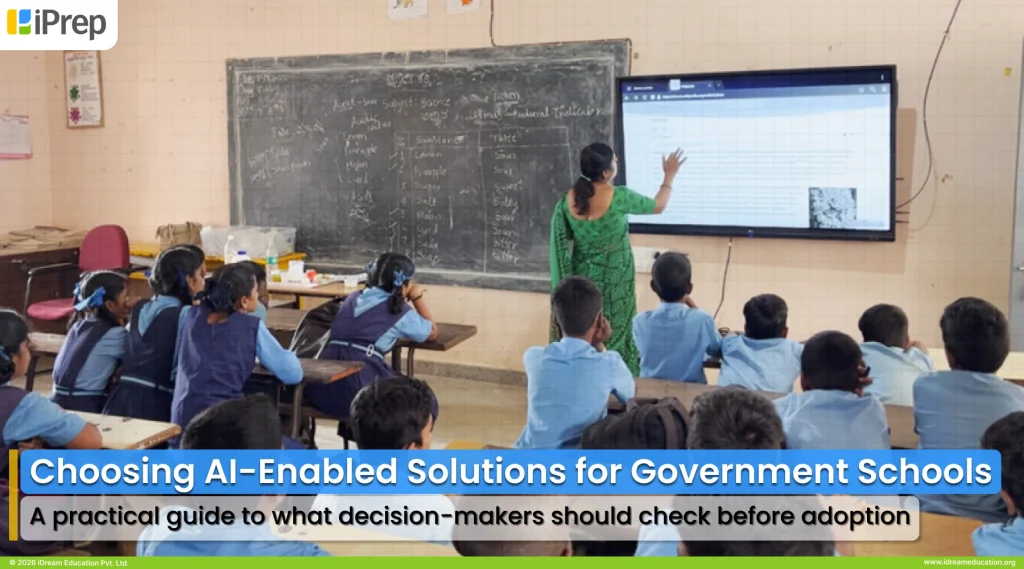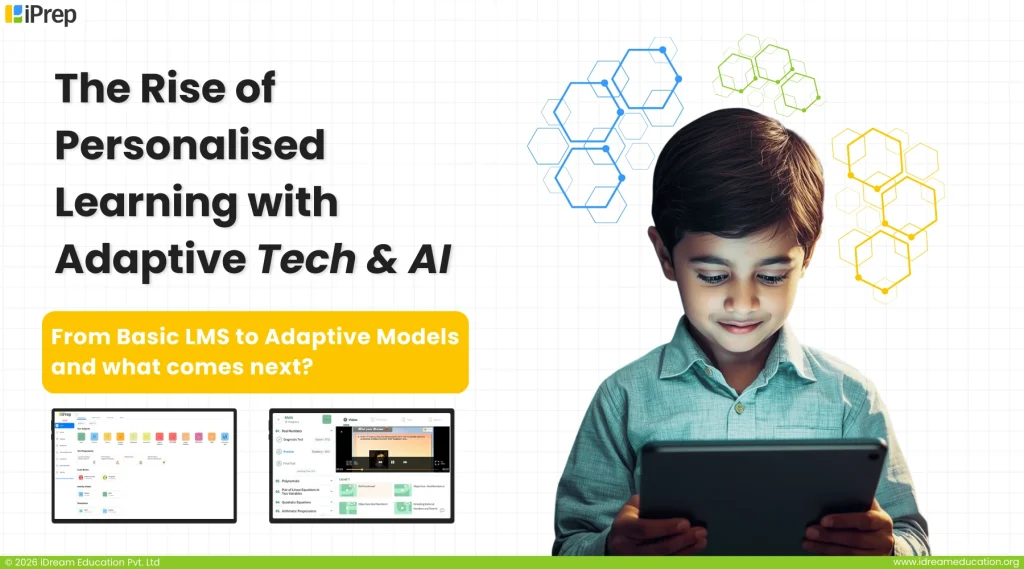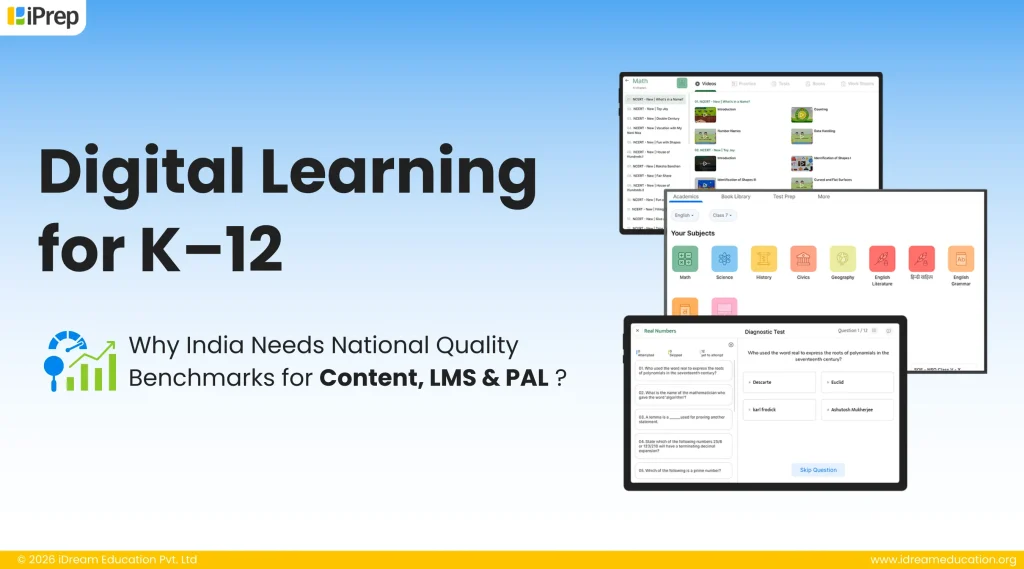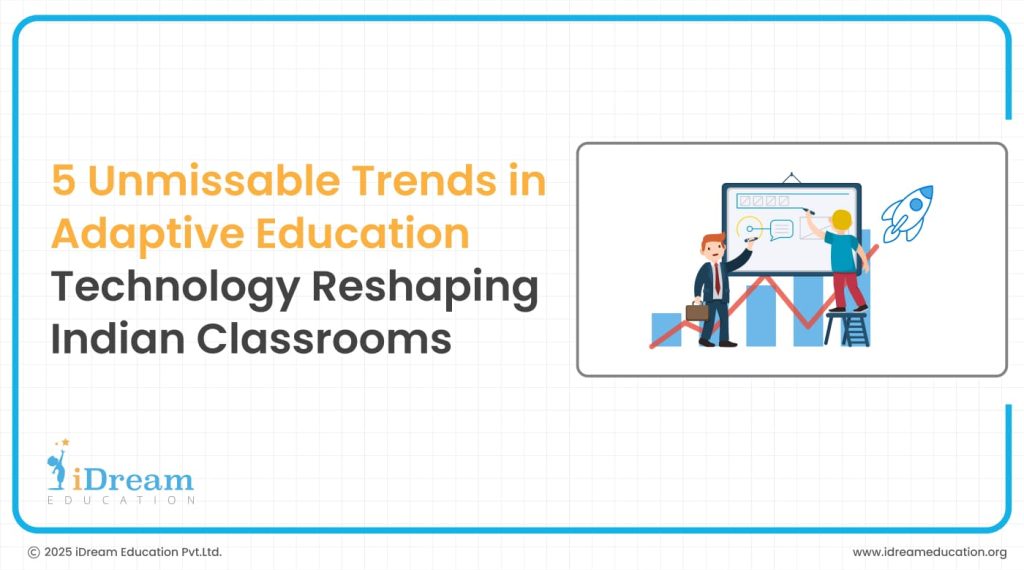
“If we teach today as we taught yesterday, we rob our children of tomorrow.”
This quote by the noted American philosopher John Dewey is a timely reminder of the need to adapt and change how teachers teach and students learn.
In India, the standard “one size fits all” approach to education often doesn’t work as well as it should. Parents, students, and teachers all want a more holistic way of teaching that goes beyond rote learning.
Personalised adaptive education technology can be a great addition to, if not a replacement for, traditional teaching. It provides customised teaching techniques depending on every student’s unique learning pace and style.
This article examines the various transformative trends in adaptive education technology that are reshaping Indian classrooms. Let’s begin.
Adaptive Education Technology: Catalyst for Change
India is experiencing a remarkable digital shift across multiple sectors (finance, agriculture, and education). This broader change is creating demand for adaptive education technologies throughout the country.
Overview of the Adaptive Learning Ecosystem in India
Personalised Adaptive Learning (PAL) has emerged as the driving force behind India’s EdTech revolution. By combining artificial intelligence and data analytics, PAL customises educational content, pacing, and instruction to match each student’s learning style and pace.
Both public and private schools nationwide are adopting this strategy, especially in K12 education. For example, the remarkable e-Adhigam project in Haryana provided over 500,000 students with personal devices that came pre-installed with PAL applications. With differing degrees of success, states like Delhi, Karnataka, Maharashtra, and Gujarat are doing the same.
As a force behind the curtain, the National Education Policy (NEP) offers strong emphasis on equity, inclusion, and skill development, actively encouraging schools to use digital tools for K12 learning such as K-12 e-learning software, for better learning outcomes.
(Explore: Digital Class equipment with costs)
Adaptive Education Technology: What Are the Key Drivers Accelerating Adoption?
Several factors are driving the rapid adoption of adaptive education technology across Indian states:
- Government Policies and Initiatives: As noted above, NEP 2020 makes technology integration mandatory in education.
- Enhanced Technological Infrastructure: Wider internet connectivity and affordable data plans have transformed digital learning access for students in both cities and villages.
- AI and Data Analytics: Smart AI-driven platforms deliver personalised feedback and adjust content instantly. It creates more engaging learning experiences.
- Public-Private Partnerships: Strategic collaboration between government bodies, EdTech companies, NGOs, and foundations proves essential for scaling adaptive education technology.
- Learning Outcomes Focus: Schools are increasingly recognising PAL as a practical solution to address foundational literacy and numeracy gaps.
- Teacher Training Programmes: Comprehensive capacity-building initiatives help educators confidently integrate adaptive learning tools into their daily teaching practices.
- Standardisation Frameworks: Quality guidelines like EdTech Tulna ensure technology solutions remain effective and scalable.
Adaptive Education Technology: 5 Contemporary Trends
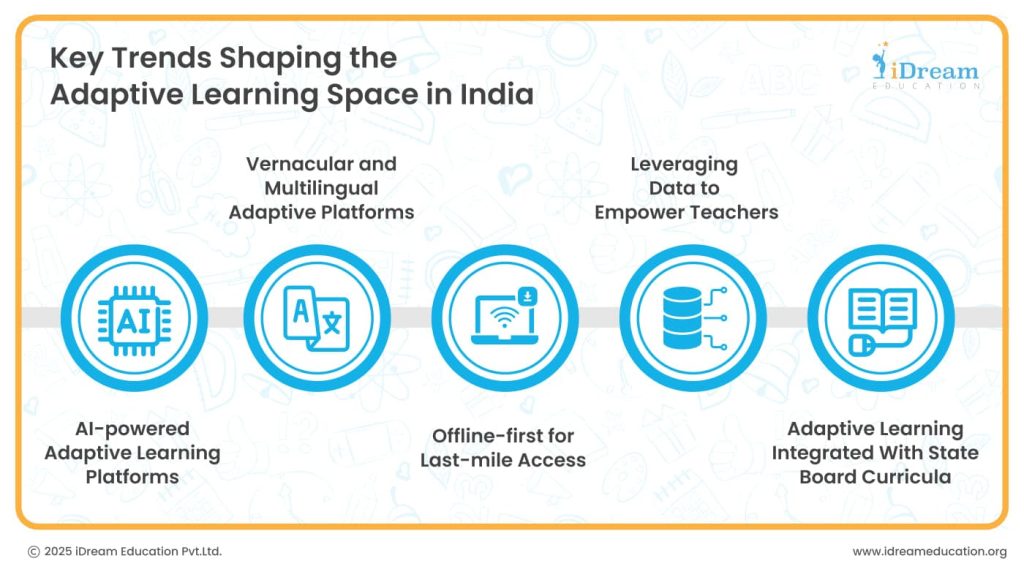
Let’s go over some noteworthy trends that are shaping the adaptive education technology space in India:
1. AI-powered Adaptive Learning Platforms
AI’s unmatched ability to evaluate student performance and recommend personalised learning paths is one of the biggest reasons why it is tipped to be the ‘next big thing’ in the education space.
Further, it can seamlessly assess a student’s learning patterns, strengths and weaknesses, paving the way for structured and customised learning.
Additionally, LMS powered by AI can switch difficulty levels dynamically and customise the learning content, including videos, quizzes, and infographics, based on the student’s historical performance and interests.
2. Vernacular and Multilingual Adaptive Platforms
India has 22 official languages and almost 19,500 dialects, which makes it very hard to provide interesting learning experiences. It also makes it harder for students who move between states, where not knowing the local language can make learning even harder.
The arrival of this kind of adaptive education technology helps students learn in the language they want to. For instance, iPrep, a K12 learning app, aims to address India’s multilingual education challenges. The platform provides comprehensive content customisation beyond basic translation by offering regionalised K-12 e-content tailored to different linguistic communities.
Students can access curriculum-aligned learning content in Hindi and English, with additional support for regional languages including Telugu, Kannada, Bengali, Marathi, Tamil, Oriya, and Gujarati.
The platform ensures that animated lessons and educational materials feel natural and familiar to students in their preferred language, supporting conceptual understanding through mother tongue learning as emphasised in the National Education Policy.
Watch Now:
3. Offline-first for Last-mile Access
India has more than 900 million internet users. Even so, the country’s internet penetration hovers around 50%, slightly below the global average. This bars millions of learners who still can’t access high-quality online learning materials or develop essential digital literacy skills.
Recognising this, several Edtech companies are stepping up, creating learning platforms that can function in low-bandwidth environments. There’s also rising interest in lightweight, personalised, and adaptive education technology solutions that offer offline access, allowing students to engage with learning content without relying on an internet connection.
For example, iPrep’s FLN Digital Content offers offline access to personalised learning material and multiple educational projects for primary schools and Anganwadi centres living in areas with poor internet connectivity.
4. Leveraging Data to Empower Teachers
Data-driven teaching and learning are at the centre of innovation across the education space worldwide. While data analytics benefits students with personalised and self-paced learning, it is also beneficial for teachers and educators.
Machine learning and AI-powered adaptive learning platforms offer valuable insights and immediate feedback on the performance of every student. Educators get to identify how students engage with content and their strengths and weaknesses. These systems also help teachers spot patterns by analysing historical data of every student and craft curated learning paths for them.
For example, iDream Education’s education tablets provide integrated reporting and analytics, offering detailed usage insights that auto-sync with a cloud-based dashboard.
5. Adaptive Learning Integrated With State Board Curricula
The significant growth in awareness and adoption of adaptive learning can be attributed to the NEP 2020, which stresses the integration of technology in education to provide customised learning experiences.
The recent push for personalised learning has also encouraged state governments across India to partner with Edtech companies and deploy adaptive education technology. For instance, Project Abhishikt in Delhi primarily focuses on helping teachers find and support gifted students with a specialised curriculum to ensure they reach their optimal potential.
iDream Education has set out on a mission to make learning accessible to students in classes 1 to 12 across India by offering state board or NCERT content across 23+ Indian states. This seamlessly blends the advantages of digital learning with the prescribed curriculum, simplifying the adoption of K-12 digital learning apps for schools and education boards across India.
Final Words
These trends signify how adaptive education technology is changing Indian education, align with policy changes, growing digital literacy, and progressive initiatives by state and central governments. The focus is shifting from a standard and one-size-fits-all educational system toward a student-centric and personalised learning model.
iPrep PAL is a personalised adaptive learning platform designed for Classes 3 to 12, available in English and Hindi. It takes a diagnostic test for each chapter, then guides students through a tailored learning path with videos, practice questions, and mastery-based progression.
Accessible offline and online, iPrep PAL helps bridge learning gaps and improve academic performance. It’s already being used in states like Haryana, Rajasthan, and Andhra Pradesh.
If you are looking for a comprehensive adaptive education technology solution for government schools in urban and rural India, you can contact us at ++917678265039">91 7678265039.
To learn more, you may contact us at +91 7678265039.
You can also share your details here or write to us share@idreameducation.org.


